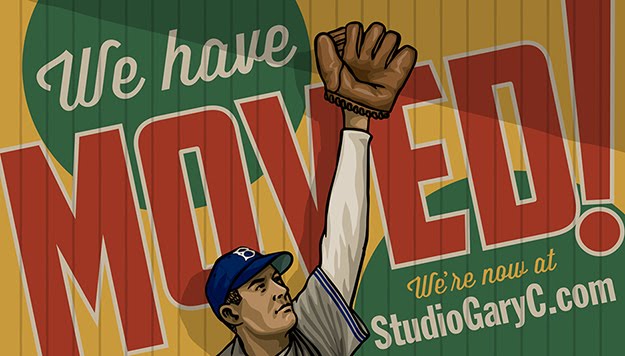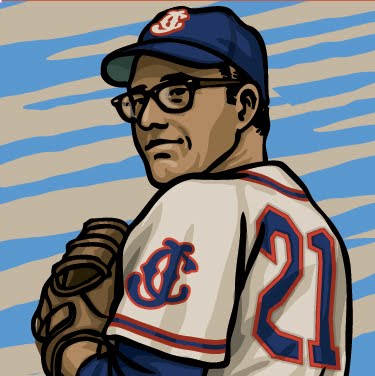 This card is the first in a series I will be doing on the Eight Men Out, the players who were banned from organized baseball after being accused of throwing the 1919 World Series. I originally had the idea of depicting the players while on the 1919 Sox, complete with their season stats and series record. In fact I actually posted the Lefty Williams and Buck Weaver cards in this format. The more I thought about it though, I decided that I wanted to focus more on an aspect that always intrigued me, what did those players do AFTER they were banned. I had heard stories back where I grew up in Northern New Jersey of Shoeless Joe Jackson playing under fake names for little Jersey town teams back in the '20's, but found no proof. At the end of Eliot Asinof's great book "Eight Men Out" he leaves us with tantalizing mention of a Black Sox barnstorming tour. Was this team real? What did these guys do after the ban? Could they have just gave up playing the game they must have loved? Through my research and with the help of many historians who generously shared their material I will attempt to create an 8 card set of these guys and the outlaw teams they played on after Judge Landis threw them out of organised baseball in the Fall of 1920.
This card is the first in a series I will be doing on the Eight Men Out, the players who were banned from organized baseball after being accused of throwing the 1919 World Series. I originally had the idea of depicting the players while on the 1919 Sox, complete with their season stats and series record. In fact I actually posted the Lefty Williams and Buck Weaver cards in this format. The more I thought about it though, I decided that I wanted to focus more on an aspect that always intrigued me, what did those players do AFTER they were banned. I had heard stories back where I grew up in Northern New Jersey of Shoeless Joe Jackson playing under fake names for little Jersey town teams back in the '20's, but found no proof. At the end of Eliot Asinof's great book "Eight Men Out" he leaves us with tantalizing mention of a Black Sox barnstorming tour. Was this team real? What did these guys do after the ban? Could they have just gave up playing the game they must have loved? Through my research and with the help of many historians who generously shared their material I will attempt to create an 8 card set of these guys and the outlaw teams they played on after Judge Landis threw them out of organised baseball in the Fall of 1920. After being banned from organized baseball, the eight Chicago players implicated in fixing the 1919 World Series spent the 1921 season playing pick-up games in and around the Chicago area waiting in vain for an appeal of Commissioner Landis' decision. The players were not actually convicted of any wrong doing in any court and the office of Commissioner of Baseball was a new institution at the time. Like many people they underestimated the absolute power the commissioner now had. By the spring of 1922 they now understood the dire situation they were in and were not likely to be let back in the major leagues for the foreseeable future. Faced with the need to make a living the players decided to capitalize on their infamous notoriety. Eddie Cicotte joined Lefty Williams, Swede Risberg, Joe Jackson, Hap Felsch and Buck Weaver to form a barnstorming team called the “Ex-Major League Stars”. Lord knows how this name must have angered the new Commissioner of Baseball. The team played a few games around the mid-west but many fans ridiculed the dirty players and most teams refused to play the them due to warnings about doing so by Commissioner Landis. Young players did not want to be tainted by the association with the banned players and to do so could have a negative effect on their eligibility to move up to organised ball. Older players understood what a terrible mark the whole affair of 1919 cast over their beloved game and local newspapers who were usually more than enthusiastic about a barnstorming team of major league players coming to town now railed against the shunned players. All was not well in the Ex-Major League Stars camp, however and the team apparently broke up when Cicotte got into a fight with The Swede over money. The rough and tumble Risberg got the best of the match and reportedly knocked two of Eddie’s teeth out. This was the last time that many of the players were together on a team. Cicotte eventually drifted back to his farm and family in Michigan where he anonymously worked on the assembly line for Ford Motor Company.
Special thanks to the people over at the great site "The Shoeless Joe Jackson Virtual Hall of Fame Web Site" http://www.blackbetsy.com/ They were very helpful answering questions and sending me newspaper articles regarding the Black Sox after 1920.



